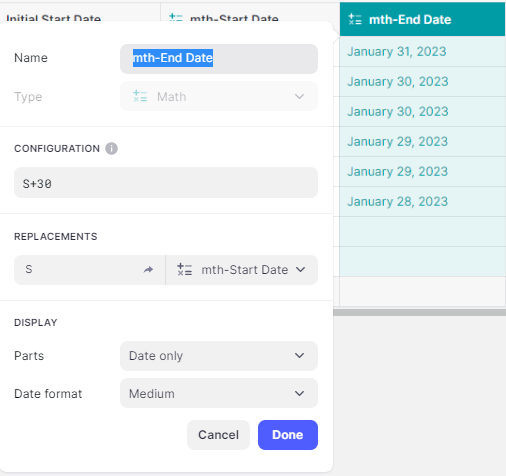I just threw this together quickly based on how I currently understand your goal.
So basically it’s 3 columns. An initial start date, which will only be set once and never change, and then a calculated current Start Date and a calculated current End Date.

- Initial Start Date is just a date column. Nothing special about it.
- mth-Start Date is calculated based on the current date.
- mth-End Date just adds 30 days to that calculated start date.

Let me know if I’m misunderstanding anything.
Awesome!
And so using your example, when the mth-EndDate is reached, will the mth-Start Date change, causing the mth-End Date to also change.
Using your first row of Initial Start Date of 1/1/23, the mth-End Date is 1/31/23. Once it becomes say 2/1/23, will the mth-Start Date change to become 2/1/23, causing the mth-End Date to then change to 3/2/23?
Obviously haven’t done extensive testing on this, but that appears to be the case.

1 Like
Perfect! What took you a few minutes would have taken me forever. Thank you so much!
1 Like
Double check my math. 30 days from Dec 17th is Jan 16th, which also becomes the start of a new cycle. I think the start date is a day early, but I want to make sure you agree.
1 Like
If it is in fact a day early, then I think it’s just a small tweak to the formula. Be sure to throw some dates at it and test it to make sure you get the expected results.
1 Like
Thanks, I’ll test it out and tweak as needed!
1 Like




